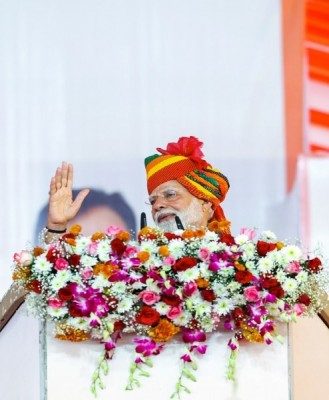
J&K administration releases five political leaders from detention since scrapping of Art 370
Mumbai/IBNS: The Jammu and Kashmir administration on Monday released five political leaders who were under detention since the abrogation of the Article 370 by the Centre on Aug 5.
The five leaders, belonging to the National Conference and Peoples Democratic Party, were kept in preventive detention for the last four months.
The leaders included Ishfaq Jabbar and Ghulam Nabi Bhat of NC and Bashir Mir Zahoor Mir and Yasir Reshi from PDP, reports said.
On Nov 25, two political leaders and former MLAs-Dilawar Mir of the PDP and Ghulam Hassan Mir of the Democratic Party Nationalist-were released by the new Union Territory administration after 110 days of detention.
Former chief ministers-Farooq Abdulalh, his son Omar Abdullah and Mehbooba Mufti are also under detention.
Kashmir issue
On August 5, the Indian government scrapped the Article 370 which provided special status to Jammu and Kashmir.
The government bifurcated Jammu and Kashmir into two Union Territories, Jammu and Kashmir with an assembly and Ladakh without an assembly.
Article 35A of the Indian Constitution allowed the Jammu and Kashmir state's legislature to define “permanent residents” of the state and also provided special rights and privileges to those permanent residents.
Article 370 allowed Jammu and Kashmir to have its own constitution, flag and right to handle its own laws except on matters that impact national security.
Since the announcement of the decision, Kashmir is under restrictions as a precautionary measure and to prevent any untoward situation.
Image credit : IBNS FILE
Support Our Journalism
We cannot do without you.. your contribution supports unbiased journalism
IBNS is not driven by any ism- not wokeism, not racism, not skewed secularism, not hyper right-wing or left liberal ideals, nor by any hardline religious beliefs or hyper nationalism. We want to serve you good old objective news, as they are. We do not judge or preach. We let people decide for themselves. We only try to present factual and well-sourced news.







